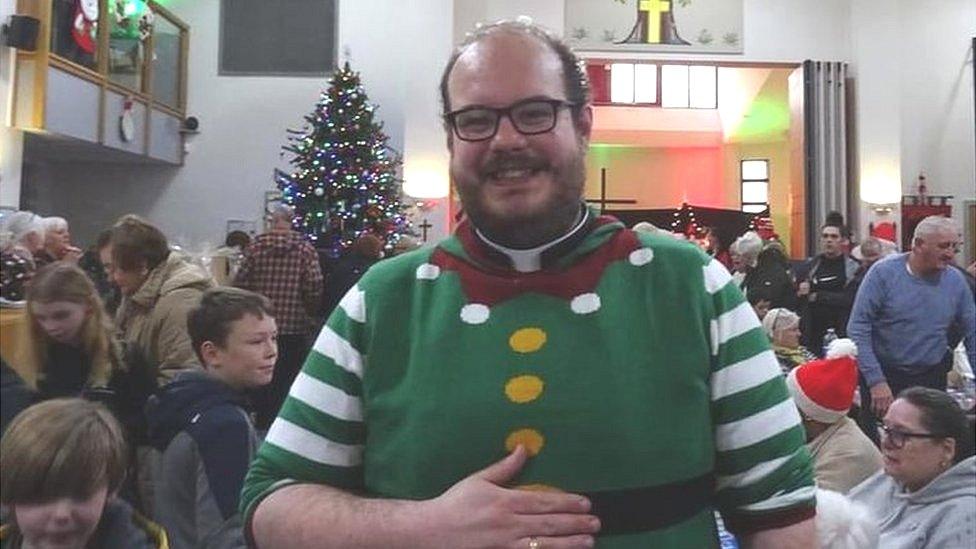'I have to go without food for my son to eat'
- Published
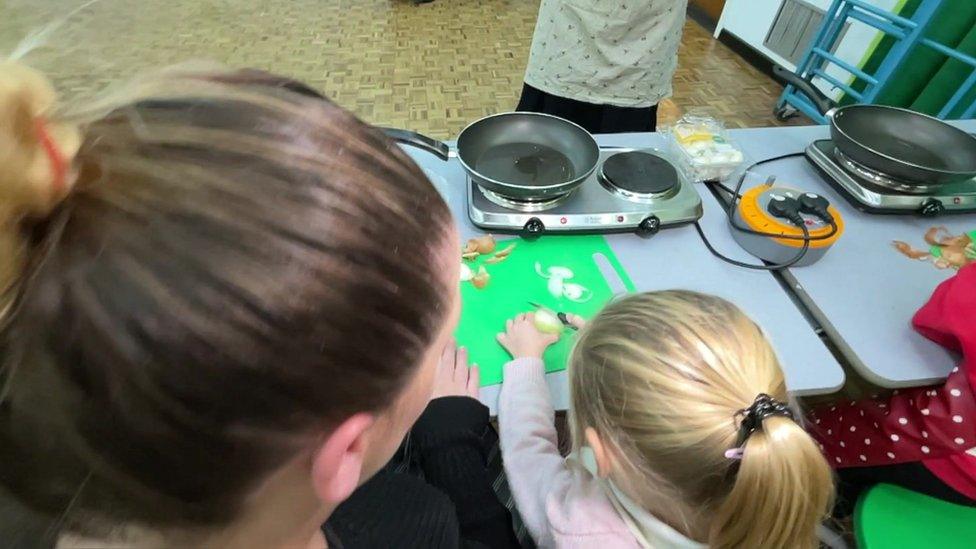
Food charity Flourishing Families says it has seen poverty treble
"My biggest concern is that kids are going to starve this winter," says Susanna Iqbal.
The charity worker, who runs a cookery club for families in Leeds, grows tearful as she talks about the prospect of children going hungry over the Christmas holidays.
She knows her worries are not unfounded.
"In every single cookery club I come across a family where either the parent hasn't managed to eat because they can't afford it or the child has had to skip breakfast," Ms Iqbal says.
Amanda, 49, is one of those parents. She tells the BBC she has to skip meals one or two days a week so her young son can eat.
"I'd rather see him have food in his belly than me," she says.
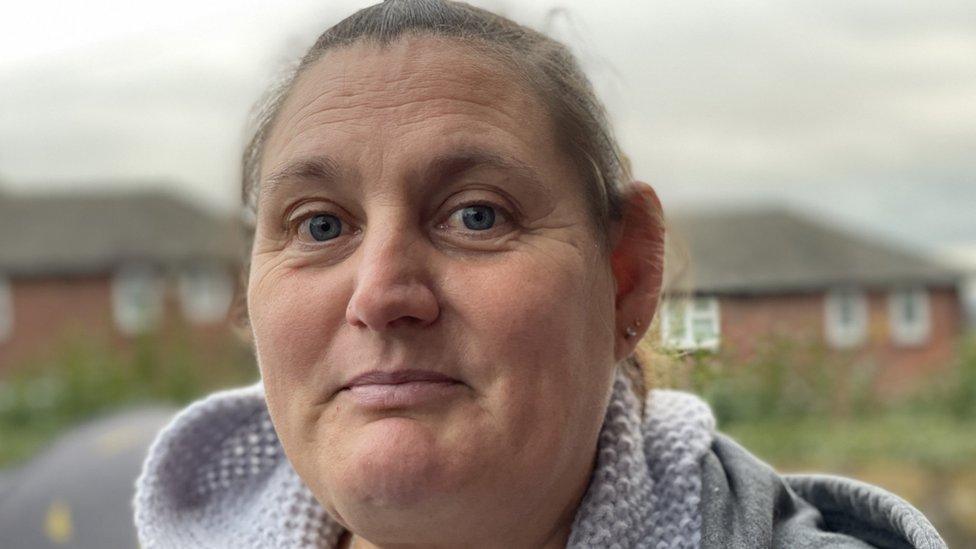
Leeds mother Amanda says she has to skip meals so her son can eat
Food is not the only thing Amanda's family has been forced to go without as the cost of living continues to rise.
She avoids using her oven due to the energy costs. Her son will sometimes wear a jacket, hat and gloves at home to stay warm instead of putting on the heating. Trips to cinema and takeaways are treats they can no longer afford.
While many people will tuck into festive feasts on Christmas Day after tearing open presents, Amanda says she will try to treat 25 December as just a "normal day".
"I'm not going to overspend, I can't overspend," she adds. "Bills have to be paid otherwise we'll be made homeless.
"I'm really scared for the future because times are hard now. It's only going to get much worse."
Flourishing Families, the charity which runs the cookery club for primary school pupils and their parents in some of the poorest areas of Leeds, warns a growing number of people are in an "absolutely desperate situation" as they struggle to make ends meet.
The charity, which helped more than 800 people in the last school year, has seen the number of families in severe food poverty treble in the past 18 months. Three-quarters of those the charity's staff see now report having to skip meals because they cannot afford food.
Kate Colbrook, chief executive of Flourishing Families, says: "Families are struggling to feed their children, they're struggling to clothe them, they're struggling to keep them clean and they're certainly struggling to keep them warm.
"The destitution is absolutely desperate."
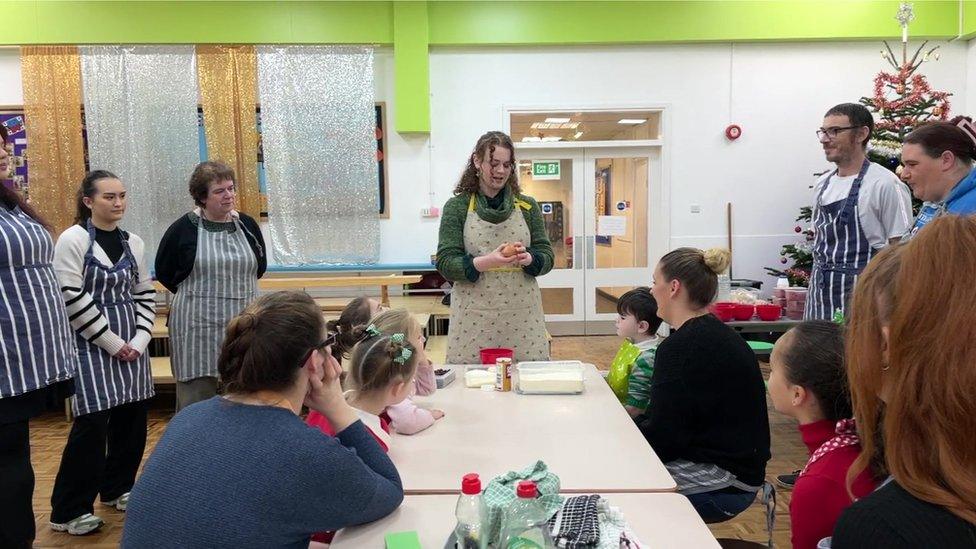
Susanna Iqbal, centre, runs a cookery club for families in Leeds
This winter the charity is delivering Christmas hampers containing fresh vegetables and fruit, as well as festive treats, to 175 families to ensure they will have food to eat over the school holidays.
While the handouts are an emergency intervention to prevent children who usually rely on free school meals going hungry during the two-week break, the cookery club is designed to help families make long-lasting changes to their diets.
Parents and children attend six to eight sessions aimed at giving them the skills, knowledge and confidence to cook nutritious food at home on a budget. Each family pays £1 and leaves with fresh food they can eat that evening.
At one session at Westwood Primary School in Middleton in the run-up to Christmas, seven parents and their children are guided through chopping onions and frying up beef to prepare a meal of curried mince.
"Coming here helps us make new things that can go around a lot more people," says one mother, Zoe, who lives with seven children in her father's crowded three-bedroom home.
Zoe's daughter, her boyfriend and their young daughter recently also moved into the house as they had nowhere else to live. With so many mouths to feed, paying bills is a constant struggle.
"We have to cut back on everything. Our gas and electric runs out on a daily basis," says Zoe. "Some days we don't have gas at all.
She added her children "don't get treats any more" and Christmas would be "really hard".
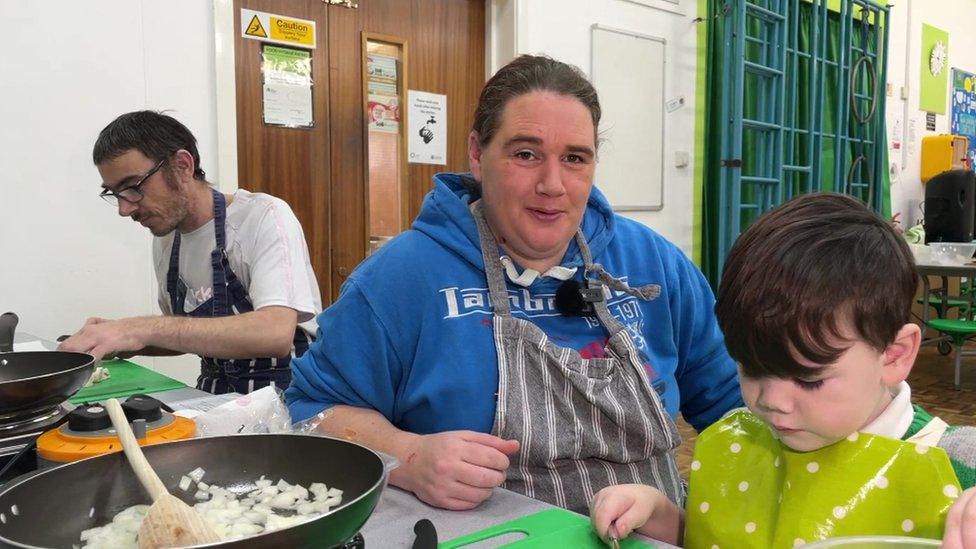
Kirsty said her family had "cut back on everything"
One in three children is living in poverty in the Leeds Central constituency, in which Middleton sits, according to a report published by the House of Commons this month. The average across the UK is about one in six.
However, those estimates are based on 2021/22 figures - and since then deprivation has deepened, according to Ms Colbrook.
While inflation in the UK has fallen since hitting a 41-year high of 11.1% in October last year, "that doesn't mean anything if prices are still going up and your wages or benefits haven't gone up," she says .
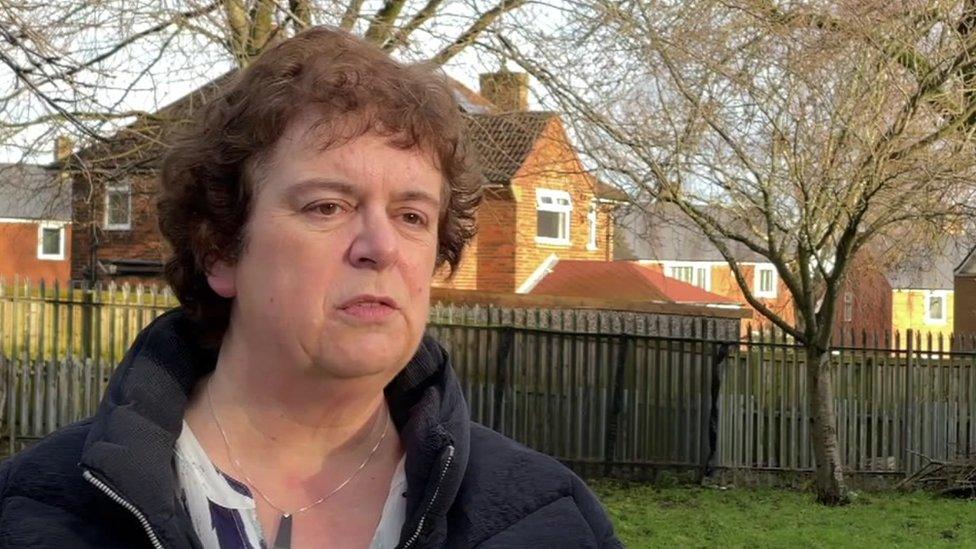
Kate Colbrook says working families have been hit hard by the cost of living crisis
Ms Colbrook says she hears "story after story of families really struggling with the cost of living crisis and what they're telling us is that this year is actually really worse than last year".
"It's the working poor who are being very hit by this, as much as people living on benefits - it's across the board," she adds.
The Joseph Rowntree Foundation (JRT) says there has been a "steep rise" across the UK in the number of people "unable to meet their most basic physical needs to be warm, dry, clean and fed".
Katie Schmuecker, principal policy adviser at the York-based anti-poverty charity, tells the BBC: "The very sharp increases in the cost of food and energy have played a part here, but the roots of this go much deeper - they go to the threadbare social security system that we now have that leaves millions of people struggling or unable to afford the bare essentials.
"This is definitely exacerbated during the winter months when heating costs are higher and special occasions like Christmas push people into even deeper financial struggle."
A total of 3.8 million people - one million of them children - experienced destitution last year, according to the charity's research.
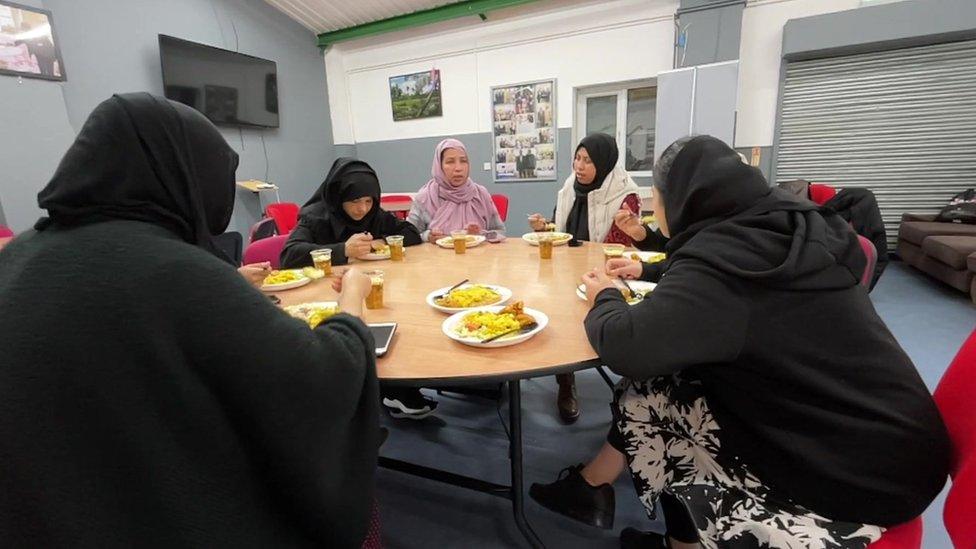
Bradford's Bangladeshi Youth Organisation says the families it supports are "suffering more than ever"
Some communities have been hit even harder than others.
Nearly half of people in households headed by someone of Bangladeshi ethnicity were in poverty in 2020/21, according to the JRT. About four in 10 people in Pakistani or Black households were in poverty, more than twice the rate of people in white households.
Salma Khatoon, who works for a charity which supports Bangladeshi families in Manningham, Bradford, says the community is "suffering more than ever before" because of the cost of living crisis.
She says this is partly because many of the families she supports live in single-income households in which the men work in low-wage jobs and the women stay at home looking after their children.
Stigma around asking for financial help is also fuelling hardship, according to the women's project manager at the Bangladeshi Youth Organisation, which delivers food parcels, arranges cookery classes and runs English lessons to support families.
"They are very shy about asking for help and they don't know where to go for help. That's why we're struggling so much," says Ms Khatoon.
The government said it was "committed to supporting the most vulnerable, which is why the £104bn cost of living package, worth around £3,700 per household, will include a 6.7% increase to benefits next year".
A spokesperson added the Household Support Fund was helping people with the cost of essentials and tax cuts in Chancellor Jeremy Hunt's Autumn Statement would save the average person £450 a year.

Follow BBC Yorkshire on Facebook, external, X (formerly Twitter), external and Instagram, external. Send your story ideas to yorkslincs.news@bbc.co.uk, external.
- Published11 December 2023
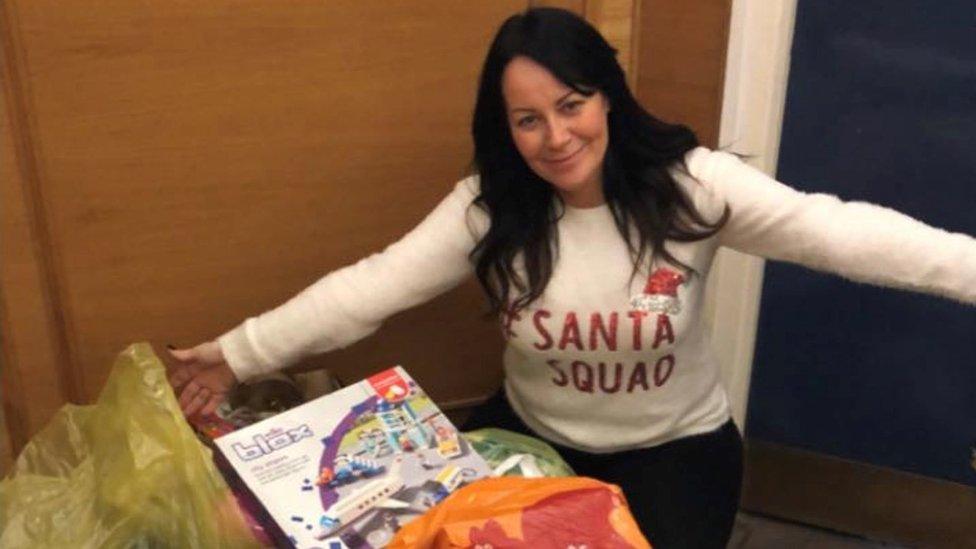
- Published3 December 2022
